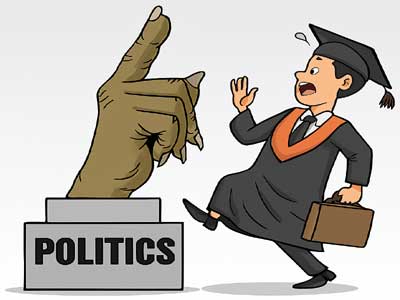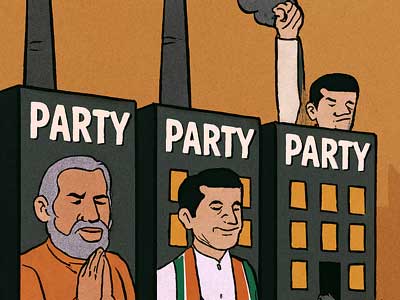India’s Supreme Court has long been celebrated as the ultimate guardian of democracy—expanding women’s rights, upholding LGBTQ equality, and championing environmental protection. Yet, recent verdicts have sparked a growing unease: are the courts now stepping beyond their constitutional role of adjudication and drifting into policymaking?
The debate is not new. Back in 1993, Justice Kuldeep Singh’s orders in the MC Mehta case imposed sweeping curbs on polluting industries in the Taj Trapezium Zone, introducing the principle of presumptive justice. Since then, judicial activism has often filled gaps left by a slow or indecisive political system. But in recent years, critics argue, interventions have edged into governance itself.
Take the February 2024 ruling that struck down the Electoral Bonds scheme—just weeks before the general elections. The timing shook political funding dynamics and triggered charges that the court had upended a parliamentary policy without adequate debate. More recently, the court directed governors and even the President to act on pending bills within fixed timeframes. It went further under Article 142, declaring some bills to have ‘automatically become law’—a move legal experts say runs against the grain of Article 200 and risks straining Centre-state relations.
Other orders have touched technical and social spheres. In 2017, a ban on liquor shops along highways disrupted millions of livelihoods before being diluted. The restriction on fireworks to ‘green crackers’, though driven by environmental concerns, raised questions about whether judges should dictate scientific and cultural policy. In 2018, the mandate to leapfrog to BS-6 emission standards by 2020 burdened industries and consumers, prompting the charge that such sweeping economic decisions belong with policymakers, not courts.
Most recently, in 2025, the Supreme Court took suo motu notice of the stray dog menace, directing their relocation to shelters within eight weeks. On paper, a humane step. In practice, impossible—Delhi alone has capacity for just 2,500 dogs against an estimated stray population of nearly a million. Worse, the order appears to clash with the Animal Birth Control Rules, 2023.
Such instances fuel concerns of the judiciary becoming a ‘parallel government’. The courts are meant to safeguard rights and liberties, not write policy. Yet defenders of judicial activism counter that the vacuum left by a sluggish legislature forces courts to act.
Senior Supreme Court advocate KC Jain argues, “Courts generally respect the separation of powers. But when policy paralysis or a legal void threatens fundamental rights, the judiciary cannot remain silent. How long can a governor sit on a bill indefinitely? Article 200 is clear—the legislative process cannot be held hostage forever. Interim directives are often the only way to protect citizens until elected representatives act.”
Public commentator Prof Paras Nath Chaudhary takes the argument further: “Judicial activism keeps the Constitution alive to modern challenges. By striking down unjust laws or filling gaps left by rigid or indifferent legislatures, courts protect marginalised groups and preserve democratic values. This is not overreach—it is a necessary check on power.”
The truth lies in a fragile balance. A strong judiciary is essential to democracy, but when it begins to craft policy, the separation of powers risks collapse. For India’s constitutional order to remain intact, the legislature and executive must shoulder their responsibilities. If Parliament and political parties do not act swiftly and decisively, the courts will inevitably step in.
The warning is clear: it is time for the political class to wake up, before the Lakshman Rekha blurs beyond repair.


















Related Items
Why Indian migrants don't flex their might…!
New Indian Romance that breaks caste barriers…
Financial concerns affect electricity usage more than environmental…